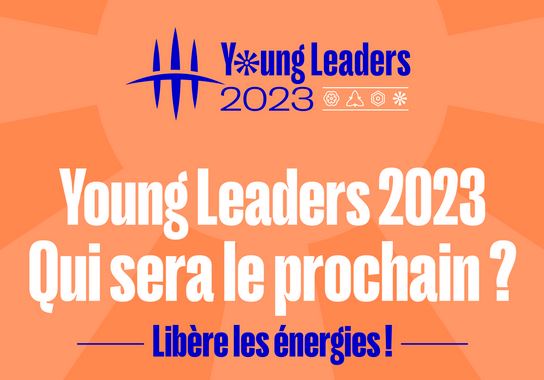The Global Practice for Macroeconomics and Fiscal Management (MFM) comprises about 313 staff working across more than 100 countries. The Practice houses the Bank’s country economists as well as professional staff with expertise in macroeconomics, fiscal policy, growth, and statistics. About fifty percent of MFM professional staff is decentralized to the field working very closely with the CMUs and in proximity to clients. MFM professionals most often work across sectors helping carry out key integrative functions. In this context MFM professionals are responsible for the preparation and delivery of the majority of the Bank’s Development Policy Operations using both IDA and IBRD resources. MFM professionals also lead or participate in a wide variety of AAA and client advisory work requiring integrative functions that add to the core MFM expertise. As such MFM staff often lead or participate in the preparation of Strategic Country Diagnostics, Country Economic Memorandums and cross sector Public Expenditure Reviews. An important additional element of engagement in macroeconomic and fiscal policies is carried through work on debt management supported by the Debt Management Facility. Knowledge and learning is a central part of MFM with work focused on 5 thematic areas: (a) macroeconomics; (b) fiscal policy; (c) growth; (d) economic management in resource rich environments; and (e) macroeconomic modelling & statistics.
The GMF08 unit covers MFM work in 13 countries within the Africa Region, namely the Senegal (AFCF1), Côte d’Ivoire (AFCF2), and Mali (AFCW3) Country Management Units. The West Africa region is a high visibility area for the World Bank and other major partners and stakeholders. The chief economic challenges in AFCW3 countries (including Guinea) include macro vulnerabilities related to internal and external shocks, insufficient revenue mobilization, limited economic diversification, low productivity, slow structural change and limited employment generation in productive sectors.
Note: If the selected candidate is a current Bank Group staff member with a Regular or Open-Ended appointment, s/he will retain his/her Regular or Open-Ended appointment. All others will be offered a 3 year term appointment.
The candidate will be expected to perform the following tasks:
1. Independently research and analyze a wide variety of specific economic, financial, country or sector topics and issues for lending, research, and/or policy related tasks.
2. Prepare country economic, sector, strategy or research reports involving the analysis, evaluation and, preparation of data, as well as the formulation of conclusions and recommendations.
3. Lead in the writing of routine reports and participate in drafting technical working papers for wider circulation.
4. Program and modify economic/financial models using existing software packages.
5. Co-manage projects, trust funds, and grants and support data needs of sectoral staff.
6. Work independently, seeking guidance and instruction on new, unusual or complex assignments.
7. Under this position, the Economist will interact and at times lead discussion with a wide variety of groups including counterparts in government and in a variety of international and other partner organizations, academia; Bank counterparts within and across sectors, networks; and managers across the Bank Group.
Required Competencies:
• General Economic Knowledge and Analytical Skills – Possesses Cross-country knowledge in economic specialty and demonstrates ability to link the macro, institutional, and micro-level behaviors; able to support findings/policy recommendations with credible analysis and tools.
• Knowledge and Experience in Development Arena – Translates technical and cross-country knowledge into practical applications and contributions to country and sector strategies; interacts with clients at the policy level.
• Policy Dialogue Skills – Anticipates needs and requests in the field and conducts independent policy discussions with representatives of the government and non-government partners.
• Integrative Skills – Understands relevant cross-sectoral areas how they are interrelated; able to undertake cross-sectoral work in lending and non-lending operations.
• Macroeconomic Skills and Country Economics Experience – Able to translate technical analyses of macroeconomic, debt, trade, fiscal policy, and growth linkages into policy recommendations and cross-country lessons.
• Written and Verbal Communication – Demonstrates the ability to influence and persuade others to accept ideas and suggestions (such as counterparts in government, international partner organizations, academia, and Bank colleagues, senior staff and managers)
• Lead and Innovate – Develops innovative solutions with others.
• Deliver Results for Clients – Achieves results and identifies mission-driven solutions for the client.
• Collaborate Within Teams and Across Boundaries – Initiates collaboration across boundaries and broadly across WBG, and brings differing ideas into the forefront.
• Create, Apply and Share Knowledge – Creates, applies and shares knowledge from across and outside WBG to strengthen internal and/or external client solutions.
• Make Smart Decisions – Recommends and takes decisive action.
Other Selection Criteria:
• Minimum of a Master’s degree in economics, with eight (8) years of professional experience. A PhD would be an asset and is equivalent to three years of professional experience.
• Strong technical and operational skills as evidenced in a proven track record in delivery of World Bank (or similar) operations, such as Development Policy Lending or analytical reports;
• Proven sense of initiative, results orientation, and leadership qualities, as well as effective teamwork skills;
• Strong communication skills, including the ability to speak persuasively and to present ideas clearly and concisely with senior policy officials.
• Strong integrative capacities; i.e., ability to situate IDA activities within a coherent strategic framework.
• Excellent communication and presentation skills, both verbally and written. Demonstrated ability to communicate clearly on complex topics to a wide variety of audiences.
• Excellent interpersonal and negotiations skills and ability to work flexibly, creatively and to multitask as the need arises.
• A high degree of self-motivation, positive attitude and drive.
• Strong commitment towards team work and knowledge sharing, especially across the World Bank Group



